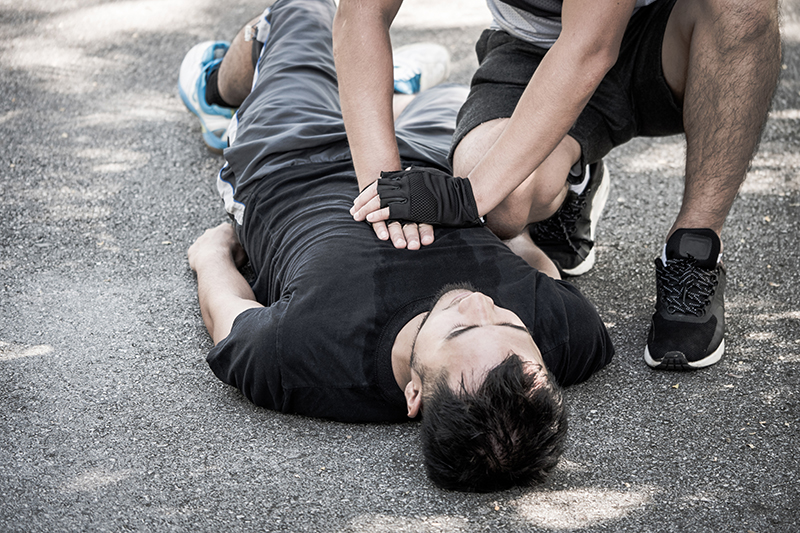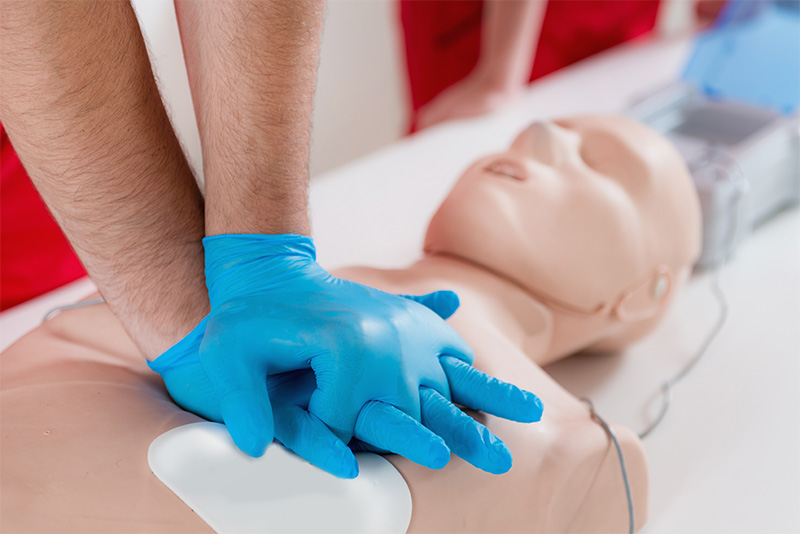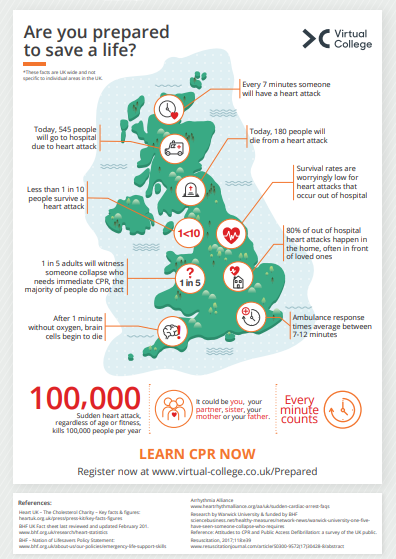Last Updated on: 11th January 2024, 05:29 pm
Are you prepared to save a life?
Learn How To Perform CPR
Heart and circulatory diseases cause more than a quarter of all deaths in the UK. That works out at nearly 160,000 each year, an average of 460 every day, or 1 every 3 minutes. Over 100,000 people are admitted to hospital due to heart attacks each year, which is the equivalent of one every 5 minutes. There are around 1.4 million people alive in the UK today who have survived a heart attack but not everybody is that lucky.
Heart attacks can lead to cardiac arrest. In the UK, somebody will go into cardiac arrest every 15 minutes. There are more than 30,000 out-of-hospital cardiac arrests in the UK each year and the survival rate is less than 1 in 10. However, in some cases, performing CPR can more than double the chances of survival. So, if you were the first one on the scene, would you know what to do?
Cardiac Arrest
Cardiac arrest occurs when the heart stops pumping blood around the body. Your brain then becomes starved of oxygen, which causes you to fall unconscious and stop breathing. If it is not treated immediately, it will lead to death within minutes.
The most common cause is a life-threatening abnormal heart rhythm called ventricular fibrillation (VF). This occurs when the electrical activity of your heart becomes so chaotic that the heart stops pumping and quivers instead.
Recovery
VF can sometimes be corrected by giving an electric shock through the chest wall and is administered by using a defibrillator. This can be done by medical staff or by a member of the public using a public access defibrillator. Immediate CPR will keep oxygen circulating the body until a defibrillator can be used and/or until the emergency services arrive.
If a person suffers from a cardiac arrest outside of a hospital, their chance of survival is less than 1 in 10. If this were to happen, they must receive treatment immediately. Every minute without CPR and defibrillation reduces a person’s chances of survival by 10%. The average response time for an ambulance in the UK is between 7 and 15 minutes.
 Cardiac Arrests in Athletes
Cardiac Arrests in Athletes
Sport is good for your health. It’s a fact, right? That doesn’t mean that footballers aren’t at risk of heart problems. Research from 2018 discovered that silent heart conditions that cause sudden death affect 1 in 266 football players affiliated with the English Football Association. The study also found that the death rate in young players is three times greater than previously believed. The chance of sudden cardiac death was 7 in every 100,000 players. Over 90% of sudden cardiac arrests in young athletes happen either during or immediately after exercise.
What can you do?
Did you know that 1 in 5 adults will witness someone collapse who needs immediate CPR? Of those people, the majority do not act.
Imagine you are at a football training session, playing a match, or cheering on your local team. If a player was to suddenly go into cardiac arrest, would you know what to do? All teams will have trained first aid professionals but, as we know, timing is everything in these cases. An immediate response would improve the chance of survival by more than double. Simply knowing how to perform CPR could save someone’s life. And learning couldn’t be simpler thanks to Virtual College.
Are you prepared to save a life?
Virtual College has made it their mission to get a lifesaver on every street corner. All it takes is access to a computer and a spare hour. The FREE course is split into the following 5 sections:
- DR ABC
- CPR
- Bleeding
- Choking
- Stroke
Each section includes a video explaining the basics of each topic and any additional information you might need to know. They will be followed by a couple of quick tests to make sure you’re ready to move on. Once you have completed each section, you will receive a certificate of achievement and, most importantly, will have the knowledge you need to save a life.
45 Minutes for a Life
Before writing this post, I underwent the Virtual College CPR training course. Overall, it took me about 40-45 minutes and I think it’s a worthwhile thing to do. The test for each section is timed to give you a sense of being in a real life-or-death scenario. The videos are detailed and will provide you with the basic skills you would need. Do I feel more confident that I could help in an emergency? Yes.
You never know when you might witness somebody go into cardiac arrest. Pendle Sportswear believes that more people involved in grassroots football should have the knowledge to administer CPR. The more people who can help then the greater the chance of survival. And it’s not just for use on the pitch. 80% of out-of-hospital cardiac arrests occur in the home. Who wouldn’t want to spare 45 minutes so they might one day be able to save a life?
For more information and to register with Virtual College you can visit their website.


